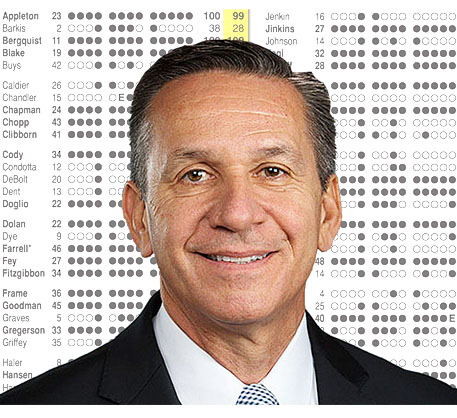OPINION
What you should know about Dino Rossi
On bread-and-butter issues, Rossi has a radical anti-worker voting record
By DAVID GROVES
(Oct. 31, 2018) — Meet Dino Rossi.
You might think you know plenty about this perennial Republican candidate who is running (again) for Congress this year. But if you are buying his sales pitch that he’s a “moderate,” you don’t know Dino.
Rossi is about as radical an anti-worker, anti-union extremist as you can find among politicians here in Washington state. As a state legislator, his career voting record on workplace issues, as measured by the Washington State Labor Council, AFL-CIO, is just 7 percent. That’s lower than every one of the 147 state legislators currently serving in Olympia.
Rossi has voted for a lower minimum wage, voted against the state’s historic Family and Medical Leave Act, voted against allowing people use sick leave to care for ailing family members, and voted to deny unemployment benefits to victims of domestic violence forced to flee their abusers. He voted against granting union bargaining rights to state employees. He wrote a budget that cut 40,000 kids in low-income families off health insurance while renewing — and expanding — special interest business tax breaks.
And that’s just a small sampling of his anti-labor voting record. What follows is a summary of Rossi’s remarkably poor voting record. But first, a little about the man.
 Dino Rossi is a real estate salesman whose history includes close association with a fraudster and, during the Great Recession, profiting by buying and selling the foreclosed properties of people losing their homes — a fact he denies, but has proven to be true. In 1992, Rossi went into politics and, after losing his first election, became a State Senator in 1996, an office he retained for two terms. But he wanted a higher office. So he ran — and lost — two campaigns for Governor in 2004 and 2008.
Dino Rossi is a real estate salesman whose history includes close association with a fraudster and, during the Great Recession, profiting by buying and selling the foreclosed properties of people losing their homes — a fact he denies, but has proven to be true. In 1992, Rossi went into politics and, after losing his first election, became a State Senator in 1996, an office he retained for two terms. But he wanted a higher office. So he ran — and lost — two campaigns for Governor in 2004 and 2008.
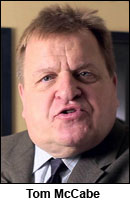 In those races, Rossi’s campaign was bankrolled by corporate PACs, and in particular, by a homebuilders’ lobbying group led by Tom McCabe, who now runs the anti-union Freedom Foundation. McCabe’s decision to spend more than $6 million on Rossi’s failed 2008 campaign amidst a housing crunch that was devastating most homebuilders led to McCabe’s ouster from that group.
In those races, Rossi’s campaign was bankrolled by corporate PACs, and in particular, by a homebuilders’ lobbying group led by Tom McCabe, who now runs the anti-union Freedom Foundation. McCabe’s decision to spend more than $6 million on Rossi’s failed 2008 campaign amidst a housing crunch that was devastating most homebuilders led to McCabe’s ouster from that group.
In 2010, Rossi ran — and lost — a campaign for U.S. Senate. In 2017, Republicans appointed Rossi to temporarily fill his former State Senate seat for that year’s legislative session. And this year, Rossi has decided again to seek higher office by running against first-time Democratic candidate Dr. Kim Schrier for the open U.S. House of Representatives seat in the 8th Congressional District.
Now, about that 7 percent labor voting record. It is worse — and more partisan — than the voting record of any Washington state legislator currently in office. During his 1997-2003 tenure in the State Senate, Rossi managed only five positive votes in 77 chances, and those were on issues with which labor, business and the leadership of both parties were all in agreement. For example, his one positive vote out of 15 in 2003 was to approve the 5-cent gas tax increase to fund transportation improvements.
On all other labor issues, Rossi sided with corporate lobbying groups and against the interests of Washington’s working families every time, including when truly moderate Republicans joined Democrats in approving legislation. Here are a few examples:
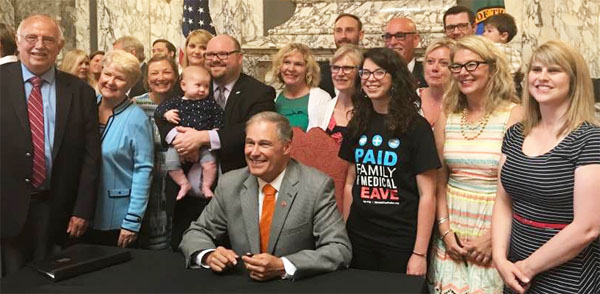 ► 2017 — Rossi voted against the Family and Medical Leave Act, bipartisan legislation to let all workers take time off for the birth or adoption of a child. It passed the Senate anyway on a 37-12 vote and was signed into law by Gov. Jay Inslee. Also in 2017, Rossi was one of only three senators to vote against “responsible bidder” legislation, sponsored by a fellow Republican, to restrict contractors that violate wage statutes from continuing to bid on public-works contracts.
► 2017 — Rossi voted against the Family and Medical Leave Act, bipartisan legislation to let all workers take time off for the birth or adoption of a child. It passed the Senate anyway on a 37-12 vote and was signed into law by Gov. Jay Inslee. Also in 2017, Rossi was one of only three senators to vote against “responsible bidder” legislation, sponsored by a fellow Republican, to restrict contractors that violate wage statutes from continuing to bid on public-works contracts.
► 2003 — Rossi voted for changes to the unemployment system that dramatically cut benefits for workers who lose their jobs through no fault of their own; for cutting workers’ compensation benefits for victims of job-related hearing loss; for repealing the workplace ergonomic safety rule; for freezing the state minimum wage; for adopting federal wage-and-hour standards (in anticipation of the Bush administration proposal to exclude some 8 million Americans from the right to overtime pay); and for authorizing charter schools.
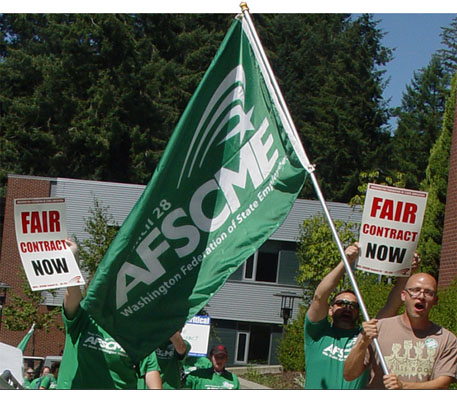 ► 2002 — Rossi voted against granting collective bargaining rights to state employees, 4-year college faculty and UW academic student employees; against the prescription drug utilization bill to create a “buying pool” negotiating lower drug prices in Washington; against allowing use of sick time or other paid leave to care for sick family members; and against allowing dues deduction for home-care workers who choose to join a union.
► 2002 — Rossi voted against granting collective bargaining rights to state employees, 4-year college faculty and UW academic student employees; against the prescription drug utilization bill to create a “buying pool” negotiating lower drug prices in Washington; against allowing use of sick time or other paid leave to care for sick family members; and against allowing dues deduction for home-care workers who choose to join a union.
► 2001 — Rossi voted against granting unemployment benefits to victims of domestic violence who are forced to quit their jobs to flee their attackers (at an annual estimated cost of just $144,000); against implementation of the state ergonomic safety rule; and against prohibiting public employers from firing or misclassifying employees to avoid providing benefits.
► 2000 — Rossi voted against the retraining bill designed to assist laid-off Boeing Machinists, timber workers and others; against providing unemployment benefits to workers locked out of their jobs (like those at Kaiser Aluminum); against promoting apprenticeship on public-works projects; and against empowering health care workers to avoid and prevent needlestick injuries. He voted for privatization of certain ferry runs.
► 1999 — There was no labor voting record that year.
► 1998 — Rossi voted against increasing agency home-care workers’ wages to an average $8.50 an hour and against a “pay gap” measure designed to grant bigger raises to state employees whose wages lag behind their private sector counterparts.
► 1997 — Rossi voted for overturning a unanimous Supreme Court decision (Birklid v. Boeing) granting legal immunity to employers that intentionally injure workers; for partial privatization of our state workers’ compensation system; for lowering state standards protecting workers from secondhand smoke; and for granting legal immunity to job site contractors who negligently injure workers who are not their employees.
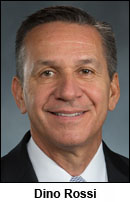 As a state legislator, Rossi has consistently sided with powerful corporations and the wealthy elite over the interests of working people. As a perennial candidate for high office, in past elections and again in 2018, those same corporate and wealthy interests continue to bankroll his campaigns.
As a state legislator, Rossi has consistently sided with powerful corporations and the wealthy elite over the interests of working people. As a perennial candidate for high office, in past elections and again in 2018, those same corporate and wealthy interests continue to bankroll his campaigns.
That’s who Dino Rossi is.
David Groves is Editor of The Stand.

